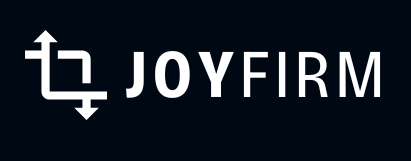The Power of AI in Project Management: Less Work, More Results
Artificial Intelligence (AI) is reshaping industries, and project management is no exception. As organizations strive for greater efficiency, AI provides the tools to automate routine tasks, enhance decision-making, and improve project outcomes. By integrating AI into project management, businesses can reduce manual workloads, increase productivity, and drive more successful project execution.
This article explores how AI has transformed project management, the benefits of AI-driven project management software, and the future implications of AI in the field. Whether you are an experienced project manager or just beginning to explore AI’s potential, understanding these advancements will help you stay ahead in an evolving professional landscape.
———
AI refers to the use of machine learning, natural language processing, and data analytics to automate and enhance decision-making processes. In project management, AI plays a critical role in streamlining operations, optimizing resource allocation, and improving overall efficiency.
Traditional project management often involves time-consuming tasks such as scheduling, task allocation, and progress tracking. AI can automate these functions, allowing teams to focus on strategic decision-making and high-value work. As organizations embrace AI-driven solutions, they experience greater agility, faster execution, and improved project outcomes.
Project management has evolved significantly over the decades, transitioning from manual tracking methods to sophisticated digital platforms. Initially, project managers relied on spreadsheets, whiteboards, and manual reporting to monitor progress. The introduction of project management software brought greater efficiency, but managing workflows still required substantial human intervention.
——-
The integration of AI represents the next phase in this evolution. AI-driven tools now automate repetitive tasks, provide data-driven insights, and enhance collaboration. AI’s impact is particularly evident in its ability to predict project risks, optimize scheduling, and improve resource management. As organizations continue to digitize their operations, AI is becoming an essential component of modern project management.
AI has significantly upgraded traditional project management software by introducing automation, predictive analytics, and intelligent decision-making capabilities. Unlike conventional tools that require manual input, AI-powered software can analyze historical data, identify trends, and make recommendations to improve project efficiency.
AI automates scheduling, resource allocation, and progress tracking, reducing administrative workload. Predictive analytics can forecast project risks, delays, and budget overruns, allowing managers to take proactive measures. AI-powered tools facilitate real-time communication, ensuring teams stay aligned on project goals. By analyzing project performance metrics, AI provides data-driven recommendations that enhance decision-making.
AI is transforming how project teams operate by minimizing manual intervention and enabling intelligent workflow management. AI-powered chatbots can provide real-time project updates, while machine learning algorithms suggest optimal task assignments based on team members’ skills and availability. This shift enhances overall project efficiency and reduces the likelihood of errors.
Agile project management focuses on flexibility, iterative development, and continuous improvement. AI enhances agile methodologies by automating backlog prioritization, identifying bottlenecks, and analyzing sprint performance.
AI predicts task completion times and allocates resources accordingly. Automated backlog management ranks tasks based on priority and dependencies. AI tracks sprint progress and suggests process improvements.
——
According to Forbes, companies using AI in agile project management have reported higher efficiency and better sprint execution. AI-powered tools help identify underperforming workflows, allowing project managers to make real-time adjustments that improve team productivity.
Effective project planning is essential for successful execution. AI enhances planning by providing accurate forecasts, automating scheduling, and identifying potential risks. AI optimizes timelines based on team availability and project complexity. AI predicts potential project risks and recommends mitigation strategies. By analyzing historical project data, AI estimates task durations and required resources.
By leveraging AI, project managers can create more accurate plans, reduce uncertainty, and ensure smoother project execution.
Task management is a core component of project execution. AI-driven task management tools automate assignments, track progress, and provide intuitive reports. AI assigns tasks based on team members' expertise, workload, and past performance. AI continuously tracks project milestones and alerts managers to potential delays. AI generates reports with insights into project health, team performance, and areas for improvement.
By utilizing AI-driven task management, organizations can ensure that tasks are distributed efficiently and completed on time.
As AI continues to advance, its role in project management will expand. Future developments may include AI-powered virtual assistants that provide real-time recommendations and automate administrative tasks. Enhanced forecasting capabilities will improve decision-making and resource planning. AI and the Internet of Things (IoT) will enable real-time data collection from physical project environments.
——
Organizations that embrace AI-driven innovations will gain a competitive edge in managing projects more efficiently and effectively.
To stay competitive, organizations must adapt to AI-driven project management practices. Companies that resist these advancements risk inefficiencies, delays, and increased operational costs.
Organizations can get started with AI in project management by evaluating current project management challenges and identifying areas where AI can provide the most value. Implementing AI-powered tools such as Microsoft Project, ClickUp, or Monday.com is a crucial step. Training project teams on AI tools ensures smooth adoption, while regularly monitoring performance allows for continuous optimization.
By embracing AI, project managers can enhance productivity, streamline workflows, and drive better project outcomes.
AI is transforming project management by reducing manual tasks, improving decision-making, and enhancing overall efficiency. Organizations that leverage AI-powered tools can expect increased productivity, better resource allocation, and more successful project execution.
The future of project management is AI-driven, and now is the time to integrate these technologies into daily operations. Exploring AI’s potential and implementing the right tools will position businesses for long-term success in an increasingly competitive landscape.
Start leveraging AI in project management today. Book an introductory call with our team to explore how AI-driven solutions can transform the way you manage projects. Let’s work together to optimize your workflows and enhance efficiency.
